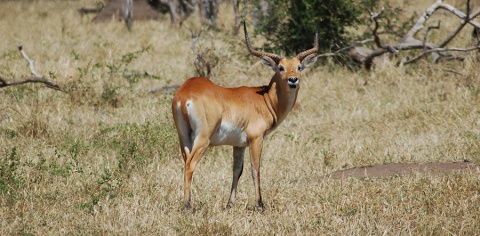
27 Jun 2017 PRESS RELEASE – PROBLEMATIC PROPOSAL RESTRICTING THE IMPORTATION OF HUNTING TROPHIES INTO THE EU RAISES DEEP CONCERNS
Brussels, 27 June 2017 – FACE welcomes that a majority of EU Member States rejected a proposal by the German Environment Ministry to introduce severe restrictions on the importation of hunting trophies for non-threatened CITES species into the European Union (Annex B species).
The proposal, which was discussed on the 20-21 June in Brussels by EU Member States’ CITES representatives during closed-door meetings, was not supported due to the obvious lack of scientific evidence. It has become apparent that the proposal was only designed to please the animal rights lobby who petitioned the German Environment Ministry during May 2017. More importantly, contrary to a CITES recommendation adopted in 2016, there was no proper consultation with the affected countries, in particular the African countries that live with and conserve wildlife on a daily basis.
Speaking in Brussels, FACE Secretary General, Ludwig Willnegger said that: “The entire hunting community in Europe and abroad must continue to combat unjustified restrictions on the importation of hunting trophies, as this topic will be further discussed in the autumn of 2017. This proposal constitutes the purest form of neo-colonialism and paternalism”.
EU Governments should acknowledge that:
Blanket bans or restrictions on trophy hunting can put at risk important benefits for both conservation and local livelihoods.
A well-regulated trophy hunting system delivers benefits for both wildlife conservation and for the livelihoods and wellbeing of indigenous and local communities living with wildlife.
Well-managed trophy hunting generates incentives and revenue for government, private and community landowners to maintain and restore wildlife as a land-use and to carry out conservation actions.
Trophy hunting gives large areas of land “conservation value” and can help address ongoing biodiversity losses.
In many areas, tourism alone cannot guarantee enough income for communities; trophy hunting combined with tourism can enormously increase the resources invested in nature conservation and anti-poaching interventions; and trophy hunting is frequently carried out in areas that are unsuitable for tourism.
In April 2016, the International Union for Conservation of Nature (IUCN) prepared a briefing paper for the European Parliament – “Informing Decisions on Trophy Hunting”.
FACE recently published a factsheet on trophy hunting, available online here.

